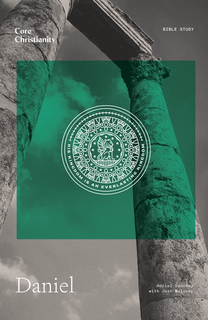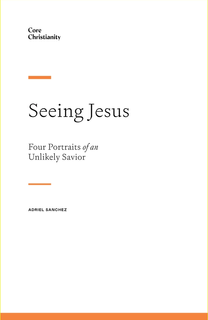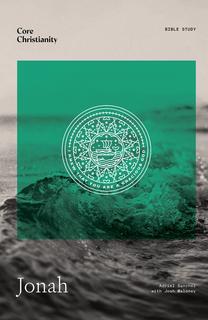Definition and Task of a Prophet
The prophets were God’s messengers to his people. This means they had to be commissioned and sent by God himself, and they could only speak what God gave them to speak. The people were therefore required to listen to them as they would to God. Their validity as prophets could be tested by whether their word came true, since this showed it to be from God (Deut. 18:15–22). The people could also go to the prophets to inquire of God, and the prophets could pray for the people and intercede for them before God.
A significant part of the prophetic job was pronouncing warning and judgment for the people’s failure to keep God’s law. God had made a covenant with Israel in which they agreed to keep his law or face certain consequences (Exod. 24:3–8; Lev. 26). Unfortunately, Israel went astray after other gods, so God sent them the prophets. Elijah, for example, staged rival sacrifices with the prophets of the false god Baal to expose Israel’s idolatry (1 Kings 18:20–40). As the people continued in their rebellion, the prophets warned them that God would exile them from the promised land (Jer. 13:15–27, 21:1–10, 25:1–14; Ezek. 12; Hos. 9:3).
The prophetic message didn’t end with judgment, however, but consistently turned to hope of restoration. God’s anger against sin gave way to compassion, and his love made a way for his people to return to him in righteousness. Jeremiah and Ezekiel spoke of a day when God would make a new covenant with his people and change their hearts so that they would obey gladly (Jer. 31:31–34; Ezek. 36:24–28).
Prophets in the History of Israel
Prophets were present for most of Israel’s history. Moses spoke with God face-to-face and led the people out of slavery in Egypt and to the promised land (Exod. 3, 34:29–35; Num. 12). At the end of the time of the judges, the prophet Samuel urged Israel to repent of its waywardness and anointed kings Saul and David. Nathan prophesied to David concerning his kingly, messianic line and rebuked him for his sin (2 Sam. 7, 12).
The messages of several prophets were recorded as books of the Bible. Some—including Hosea, Amos, Micah, and Isaiah—lived during the time of the kings of Israel and Judah, the northern and southern kingdoms. Jeremiah, Ezekiel, and Daniel prophesied at the time of the exile. Haggai and Zechariah prophesied after Judah had returned from exile and encouraged the people to rebuild the temple. After this there was no word from God for many years, until John the Baptist appeared to announce the arrival of Jesus Christ.
Christ as Prophet and Prophetic Fulfillment
According to the apostle Peter, the prophets had the Spirit of Christ. Even when they spoke of events in their own time, their words were more profoundly fulfilled by Christ. For example, Isaiah spoke of the servant of the Lord, referring to Cyrus of Persia, who would restore God’s people to their land. Ultimately, though, he spoke of Christ, the servant who would save God’s people from their sins (Isa. 44:28–45:4).
The Gospel of Matthew traces the fulfillment of several prophecies in the life of Christ. He was born in Bethlehem to a virgin (Matt. 1:23, 2:6; Mic. 5:2; Isa. 7:14). He began his ministry in Galilee (Matt. 4:15–16; Isa. 9:1–2). He was the chosen servant spoken of by Isaiah (Matt. 12:18–21; Isa. 42:1–3). He entered Jerusalem as a humble king, riding a donkey (Matt. 21:5; Zech. 9:9).
As God turned from judgment upon Israel to compassion, these words of hope described the salvation Christ would accomplish. According to Isaiah, God himself was going to come to comfort his people, forgive their sins, and tend to them like a shepherd (Isa. 40:1–11). Christ came as this divine shepherd (John 10:7–18). Isaiah also described the coming servant of the Lord as the righteous one who would suffer for sinners (Isa. 52:13–53:12). Christ bore our sins on the cross to restore us to himself (1 Pet. 2:22–25).
Besides being the one about whom the prophets spoke, Jesus was himself the final and ultimate prophet, the Word of God come in the flesh, through whom God has revealed himself to us (John 1:14; Heb. 1:1–2).
Prophetic Themes and Idioms
Reading the prophets can be daunting. God often revealed himself through them in visions and symbols. They also spoke in terms of Israel’s history, context, and religious observances, which can be unfamiliar to us.
Other parts of the Old Testament can therefore provide helpful context for understanding the prophets by showing us the meaning of key people, events, and symbols. For example, several of the prophecies of restoration describe a Davidic king on the throne again (Isa. 11:1; Jer. 33:17–22; Ezek. 37:24–26; Amos 9:11). Understanding the history of King David, God’s promise concerning his line, and the genealogy of Christ can all provide background for what these prophecies mean and how Christ fulfills them.
The prophets also tended to see the time from the first coming of Christ to the final judgment as one whole, without clearly distinguishing events that are separated from each other by thousands of years. Joel, for example, spoke in one breath of the Spirit poured out at Pentecost and of the destruction of the sun and the moon at the day of the Lord (Joel 2:28–32; Acts 2:16–21). Some prophecies may, therefore, be only partially fulfilled as we await final consummation.
What Does the Bible Say?
- Definition of a prophet: Deut. 18:15–22
- Commissioning of prophets: Exod. 3; 1 Sam. 3; Isa. 6; Jer. 1; Ezek. 1–3
- Interceding for the people, inquiring of God: Exod. 33:12–23; 1 Sam. 2:19–25; 2 Chron. 32:20–21; Dan. 9; 2 Chron. 34:19–28
- Covenantal prosecutors: 1 Kings 18:20–40; Isa. 1:2–3; Jer. 2:1–3:5; Hos. 4:1–3; Amos 2:4–3:15; Mic. 1:1–7
- Restoration after judgment: Isa. 40:1–11; Jer. 31:1–14; Ezek. 37:15–28; Hos. 2:14–23, 11:8–11; Joel 2:18–32; Amos 9:11–15; Mic. 7:18–20; Zeph. 3:14–20
- Christ as fulfillment of the prophets: 1 Pet. 1:10–12, 2:22–25; Matt. 1:23, 2:6, 4:15–16, 12:18–21, 21:5; Micah 5:2; Isa. 7:14, 9:1–2, 42:1–3; Zech. 9:9
- Christ as prophet: Heb. 1:1–4
Recommended Resources:
- The Word of the Lord: Seeing Jesus in the Prophets, by Nancy Guthrie










